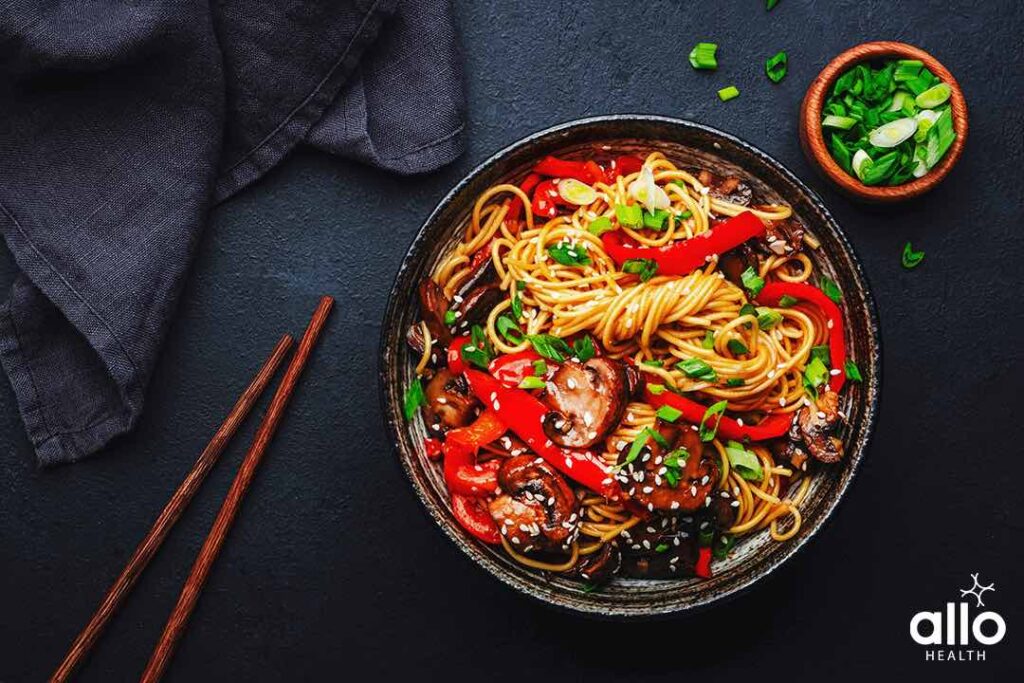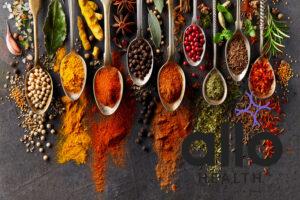Can Spicy Food Cause Erectile Dysfunction?

Allo Health is dedicated to personalized well-being, offering support and trusted information tailored to individual health goals. The platform emphasizes human-generated content, led by a distinguished medical team of experts, including physicians and sexual health specialists. Their commitment to credibility involves rigorous fact-checking, authoritative research, and continuous updates to ensure accurate, up-to-date information. Allo Health's unique approach goes beyond conventional platforms, providing expert-led insights and a continuous commitment to excellence, with user feedback playing a crucial role in shaping the platform's authoritative voice.

An early career psychiatrist with extensive experience in general adult psychiatry, relationship issues, psychosexual problems & special interest in sexual medicine, disorders with addictive behaviours and Obsessive Compulsive disorders. He is an astute physician with excellent academic record and research experience. He is also a member of World Health Organisation and World Psychiatric Association. His vision and goal for Allo is an inclusive, accessible digital health clinic for psychosexual difficulties.
Why This Was Upated?
Our experts continually monitor the health and wellness space, and we update our articles when new information became available.
Updated on 20 December, 2023
- Article was updated as part of our commitment to diversity, equity, and inclusion.

"The following blog article discusses food and diet-related information for general educational purposes. However, it is important to note that the information provided is not intended as personalized dietary advice and should not be considered a substitute for professional guidance from a registered dietitian or qualified healthcare professional. Before making any significant changes to your diet or nutrition plan, it is recommended to consult with a registered dietitian or healthcare professional.
Book consultation
Dietary changes can have a significant impact on your overall health and well-being. It is important to approach any changes to your diet in a balanced and sustainable manner, ensuring that you meet your nutritional needs and avoid any potential nutrient deficiencies. Rapid or extreme changes in dietary patterns can be detrimental to your health and may require professional guidance.
It is crucial to note that any specific dietary recommendations or guidelines mentioned in this article may not be appropriate for individuals with specific medical conditions, allergies, or intolerances. A registered dietitian or healthcare professional can provide individualized advice, including modifications or alternative food choices to accommodate your unique circumstances.
The information provided in this article may not encompass all possible dietary considerations or account for the latest research and nutritional guidelines."
A healthy sexual life rewards you with pleasure and various other physical, emotional, and psychological benefits. And it is often said, “you are what you eat,” and your diet can largely impact your sex life.
A good diet can help boost your libido and ensure your body is working well. A poor diet can lead to a host of health concerns, which may negatively affect your sexual health. And when it comes to food, spicy food is the best at tingling our taste buds. But how do they affect your sexual life, especially for men is the question?
What Is ED And What Causes It?
Erectile dysfunction is a common sexual dysfunction experienced by men. It refers to having difficulty in achieving or maintaining an erection firm/hard enough for sexual intercourse all or most of the time.
The symptoms of erectile dysfunction (ED) can include:
- Difficulty getting an erection
- Difficulty maintaining an erection
- Reduced sexual desire
- Troubles with sexual performance
- Anxiety or depression related to ED
Potential Causes Of Erectile Dysfunction

There are many possible causes of erectile dysfunction (ED), which can be physical, psychological, or a combination of both. Some common causes include:
- Cardiovascular disease: Atherosclerosis, high blood pressure, and other conditions that affect blood flow to the penis can make it difficult to achieve and maintain an erection.
- Neurological conditions: Conditions such as multiple sclerosis, Parkinson’s disease, and spinal cord injuries can affect the nerves that control erections.
- Hormonal imbalances: Low levels of testosterone, the primary male sex hormone, can contribute to ED.
- Medications: Certain medications, such as antidepressants, antihistamines, and blood pressure medications, can cause ED as a side effect.
- Psychological concerns: Anxiety, depression, chronic stress, and relationship concerns can all contribute to ED.
- Lifestyle factors: smoking, excessive alcohol consumption, obesity or excess body weight, and lack of physical activity can all contribute to ED.
Trauma to the pelvic area or penis, Peyronie’s disease, or certain surgeries also can be causes of ED.
What Does Spicy Food Do?
 Capsaicin, an organic compound produced by the seeds in plants of the genus Capsicum, is the active ingredient that gives spicy food its fiery heat. And apparently, capsaicin has many benefits for the human body. From increasing HDL cholesterol and improving the gut microbiome to enhancing metabolism via weight loss, there are a lot of benefits. But what’s more interesting and our point of concern, too, is eating spicy food increases testosterone levels in men.
Capsaicin, an organic compound produced by the seeds in plants of the genus Capsicum, is the active ingredient that gives spicy food its fiery heat. And apparently, capsaicin has many benefits for the human body. From increasing HDL cholesterol and improving the gut microbiome to enhancing metabolism via weight loss, there are a lot of benefits. But what’s more interesting and our point of concern, too, is eating spicy food increases testosterone levels in men.
Spicy Food, Testosterone, and ED
In a study, it was found that there is a positive correlation between endogenous testosterone levels of men who eat more spicy food. This suggests that men who have higher spicy food consumption are likely to have higher testosterone levels than their counterparts, and erections are clearly androgen dependent.
The higher the testosterone level, the more likely it is that the man experiences a better erection and has a lesser chance of having ED. Also, the other way around that high testosterone drives men to eat more spicy food is still a topic of research.
Spicy food not only improves ED by increasing the levels of testosterone but also decreases the risk of heart diseases and increases metabolism via weight loss which is necessary for increased libido and, thus, leads to a better and stronger erection.
Capsaicin, the chemical found in spicy food items, especially chillies, has been shown to act as a natural blood thinner that can improve blood circulation and lower blood pressure and cholesterol levels. The better your body can circulate blood, the easier it is to get and maintain an erection.
Chilli peppers contain capsaicin, and there is some evidence to suggest that the consumption of chilli peppers may have a positive effect on erectile dysfunction.
However, more research is needed to confirm these findings and to determine the optimal amount and frequency of chilli pepper consumption for treating erectile dysfunction.
Spicy food also increases endorphin and dopamine levels which are all hormones that can help you become aroused and feel good. Additionally, the alkaloid in chillies can lead to higher stimulation of the nerves in the penis.
Given the advantages of spicy food, especially chillies shouldn’t fool you around to go grab a bunch of them and eat mindlessly. Many people can benefit from eating spicy foods, but it isn’t the best option for everyone. People who have inflammatory bowel disease (IBD) like Crohn’s disease or ulcerative colitis (conditions that cause inflammation in the digestive tract) may find that spicy food may trigger a flare-up. For some people, spicy food can have other side effects:
- Acidic reflux
- Diarrhoea
- Stomach pain
- Nausea
And all these side effects may worsen the sex life of men who have such conditions. So although spicy food improves ED conditions, that does not imply that eating them can completely cure ED. Going to a doctor, following a properly balanced diet, making lifestyle changes like quitting smoking and liquor consumption, and doing exercise too are important for its treatment. Moreover, getting to know your body type and what kind of food suits you is also important.
Key Takeaways
- Erectile Dysfunction (ED) is a sexual dysfunction in men characterized by difficulty in achieving or maintaining an erection.
- Spicy foods contain capsaicin, which can increase testosterone levels in men and potentially improve erectile function.
- Capsaicin in spicy foods acts as a natural blood thinner, promoting better blood circulation and potentially aiding in ED.
- Spicy foods may increase endorphin and dopamine levels, leading to arousal and improved sexual pleasure.
- However, spicy foods may not be suitable for everyone, especially those with inflammatory bowel conditions, as they can trigger side effects like acid reflux, diarrhea, and stomach pain.
- While spicy foods may have benefits for ED, it is essential to consult a healthcare professional and adopt a balanced diet and lifestyle changes for effective ED treatment.
Frequently Asked Questions
Q: What are the sexual health benefits of spicy food?
A: The sexual health benefits of spicy food are:
- Increased Testosterone: Spicy foods, containing capsaicin, may boost testosterone levels in men, potentially leading to improved libido and better sexual performance.
- Improved Blood Circulation: Capsaicin acts as a natural blood thinner, enhancing blood flow and aiding in achieving and maintaining erections.
- Enhanced Arousal: Spicy foods can increase endorphin and dopamine levels, promoting arousal and heightened sexual pleasure.
Q: What treatment options are available for erectile dysfunction?
A: Treatment options for erectile dysfunction (ED) include:
- Oral Medications: PDE5 inhibitors like Viagra, Cialis, and Levitra are commonly prescribed to improve blood flow to the penis and facilitate erections.
- Lifestyle Changes: Adopting a healthy lifestyle, including regular exercise, a balanced diet, quitting smoking, and reducing alcohol consumption, can positively impact ED.
- Psychotherapy and Counseling: Addressing any psychological factors contributing to ED through individual or couples therapy can be beneficial in improving sexual function.
Q: What are the side effects of spicy food?
A: The side effects of spicy food can include acidic reflux, stomach pain, diarrhea, and nausea. Spicy food may also trigger flare-ups in individuals with inflammatory bowel disease like Crohn’s disease or ulcerative colitis.







































